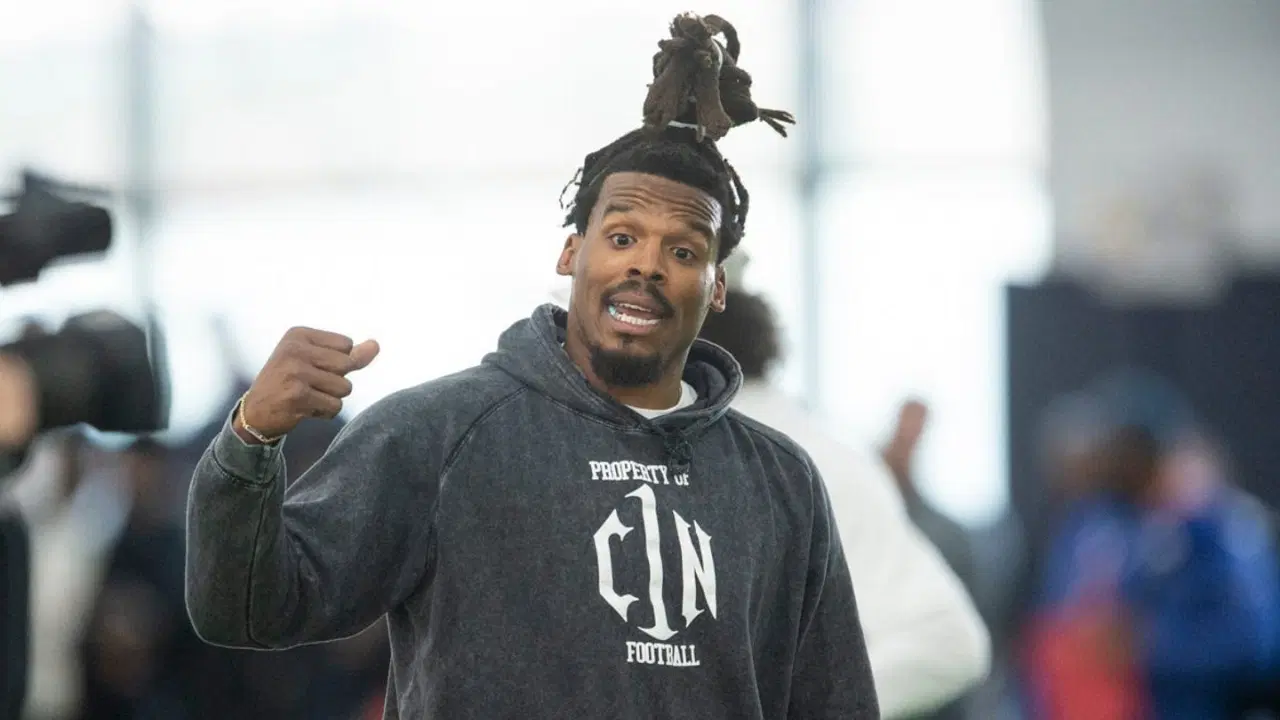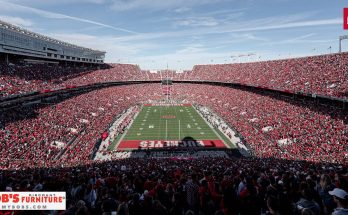Cam Newton is never one to mince words, and he’s once again proving that when it comes to his name, reputation, and legacy, he refuses to let anyone—former teammate or not—twist the narrative. The former NFL MVP and Carolina Panthers legend took to social media with a sharp and pointed message aimed directly at former Washington quarterback and current ESPN analyst Robert Griffin III. Newton’s message? Loud and clear: “We got to stop the cap.”
The public callout came after a recent clip circulated online showing RGIII making bold claims about Newton’s NFL career, suggesting that the former star was more interested in fashion and flair than football, and speculating on his place in NFL history. Newton, known for his dynamic playing style and equally bold fashion statements, wasn’t having it. In an era where hot takes and viral content rule the sports media landscape, Newton made it known that his name isn’t up for cheap usage—and he’s not afraid to call it out when it happens.
“Bruh, we got to stop the cap,” Newton said bluntly in his video response, his trademark charisma tinged with clear frustration. “I’m seeing all these clips, all these headlines, all this clickbait—and my name right in the middle of it. Y’all gotta stop using Cam Newton as a soundbite. If you got something to say, keep it real. But don’t come up off my name for attention.”
For fans of both quarterbacks, the spat marks a striking contrast in how the two have navigated life after football. Newton, once the face of the league and a cultural icon, has always drawn intense scrutiny—from his celebratory “dabs” to his post-game interviews and signature fashion. Yet no one can deny his impact: a Heisman Trophy winner, national champion at Auburn, No. 1 overall draft pick, and 2015 NFL MVP who led the Panthers to Super Bowl 50.
RGIII, meanwhile, entered the NFL with similar fanfare in 2012, winning Offensive Rookie of the Year and flashing superstar potential with Washington. But injuries and coaching instability derailed his career, and after brief stints with other teams, he transitioned to broadcasting—where his penchant for bold statements and animated commentary has made him a rising media figure.
But Cam Newton’s beef isn’t with RGIII’s career path or even his opinions. It’s with what he sees as a pattern of using his name to generate buzz. “You can talk football all day. You can talk legacies, stats, whatever. That’s part of the game,” Newton said. “But don’t twist my story. Don’t act like you know my motives, or what I was about, especially when you weren’t in those locker rooms with me. That’s disrespectful.”
The exchange quickly caught fire on social media, with fans, former players, and analysts weighing in. Some sided with Newton, applauding him for standing up for himself in an era where media narratives can often overshadow facts. Others argued RGIII, as a broadcaster, has a right to express his opinion—no matter how polarizing. But regardless of which side you’re on, one thing is clear: Cam Newton’s voice still commands attention.
The incident also highlights a growing tension in modern sports media. As former players transition into the analyst chair, the lines between critique and personal jab can blur. RGIII, like many others in this new wave of athlete-turned-media personalities, brings firsthand experience and perspective—but also walks a tightrope between commentary and controversy.
Newton’s frustration is rooted not just in the words themselves, but in what he sees as a broader media trend of reducing complex careers and legacies to viral soundbites. “People forget what it takes to do what I did,” he said. “It wasn’t all perfect, but it was mine. I earned that MVP. I carried a franchise. I took hits that would’ve broken other guys. I did it all being me. So if you want to talk about me, talk real. Don’t chase clicks.”
In typical Cam Newton fashion, his response wasn’t just fiery—it was thoughtful. He didn’t just call RGIII out; he called for more accountability in how former players discuss one another in public forums. Newton’s message wasn’t just about a single clip or one moment of perceived disrespect. It was about protecting a legacy and calling for more authenticity in a space increasingly dominated by spectacle.
What also stands out is Newton’s awareness of how narratives shape perception. His career, especially in its latter years, was riddled with injuries, changing systems, and shifting public opinion. Yet through it all, Newton remained unapologetically himself. Whether it was rocking bold hats at pressers, mentoring younger QBs, or launching his own content platforms, Newton never strayed from his identity. Now, as he transitions further from the playing field into the next chapter, it’s clear he wants to control the narrative on his terms.
Robert Griffin III has yet to respond directly to Newton’s comments, though he’s been active on social media discussing various NFL topics. Whether or not he addresses the situation, the moment serves as a reminder to all sports media personalities—especially former athletes—that with great platform comes great responsibility.
It’s also a lesson in brand protection. Newton, more than most, understands the power of public image. His message wasn’t just damage control—it was a firm boundary being set. For a man who’s been doubted, written off, and mischaracterized more than once, it’s clear he’s done letting others dictate the story.
“I’m not asking for special treatment,” Newton said. “I’m asking for respect. For truth. For context. That’s not too much to ask.”
In today’s age of 30-second clips and headline culture, Newton’s frustration resonates. While spirited debate is the lifeblood of sports commentary, it walks a fine line—especially when names, reputations, and careers are involved. Newton’s clapback is a wake-up call to slow down, go deeper, and get it right.
For Cam Newton, legacy matters. And if he has to go on camera, raise his voice, and demand that others stop “the cap” to defend it—he absolutely will. Just as he did on the field, he’s doing now off it: standing tall, speaking boldly, and refusing to let anyone define him but himself.
As the headlines fade and the debate cools, one thing is certain: Cam Newton’s voice is still as powerful as his arm once was. And he’s not afraid to use it.


